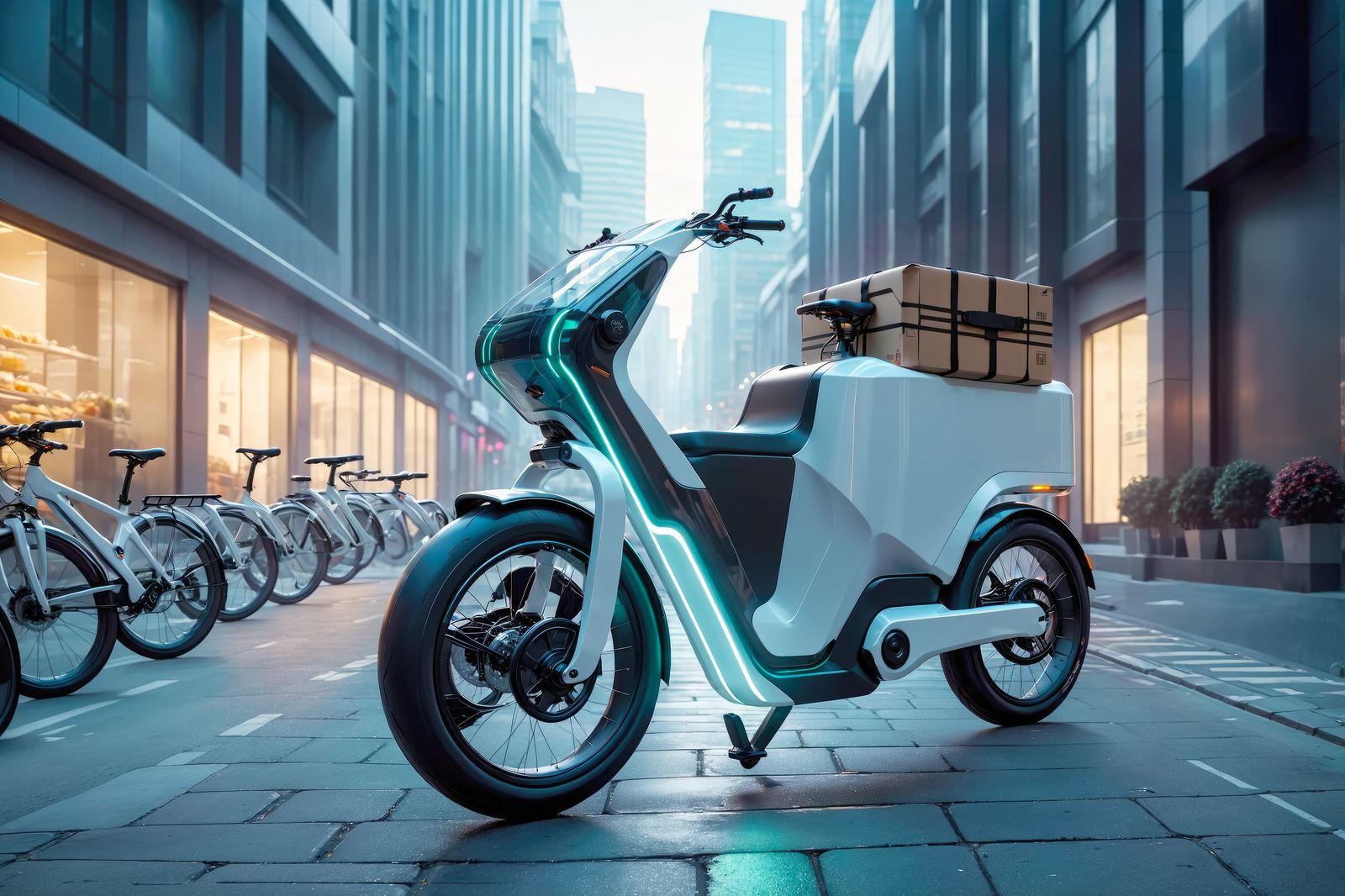E-Mobility in Dubai's Delivery Sector
by Karla Lopez

According to Dubai's Roads and Transport Authority (RTA), an electric motorcycle prototype was introduced in 2023 targeted at delivery companies so that it accelerates the shift towards cleaner, more sustainable mobility solutions, surely agreeing with the sweeping global trend of last-mile logistics.
What we are seeing is that more and more companies are going this way around the world to reduce emissions, operational costs, and to improve efficiency. As for the UAE, the transformation is happening at a fast pace, and there lies a huge opportunity for companies willing to adopt and lead the change.
Some leading-edges in the paradigm shift in the delivery sector, offering opportunities for potential players therein.
Development of Charging Infrastructure
A remarkable aspect of the transition is building an efficient charging station infrastructure. Ambitious plans have been set by the RTA to put in place a grid of charging stations across Dubai along key locations most served by the delivery sector, such as Al Barsha and Zabeel. Such stations will ensure optimum support for an ever-expanding fleet of electric vehicles hitting the delivery roads. The government is working to address the infrastructure needs to keep pace with increasing demand for electric mobility solutions while permitting businesses to integrate these seamlessly.
Smart Infrastructure
From roads with wireless charging systems to intelligent road traffic systems, reducing travel time and crash response, Dubai is no stranger to innovative projects in this very sector. These ventures are a way of proving Dubai's promise to improve mobility and might very well just be the very beginning towards what future networks look like across the UAE.
Route Optimization Technology
Electric vehicle route optimization has different technological applications such as:
- Charging Update: Provides up-to-the-minute knowledge about the charge status of the vehicle and alerts you when the charge is complete.
- Station Maps and Route Planning: Shows existing charging points to keep the route under control and relieve access to charging stations all the way.
- Mixed Fleet Management: Oversees and manages fleets with electric, hybrid, and conventional vehicles from a single platform simultaneously.
Innovative solutions
With the rise of e-commerce and the demand for faster, more sustainable deliveries, the city is implementing practical, innovative solutions that are altering urban mobility:
- Motorcycle Tokenization: 10,000 electric motorcycles will be deployed within the UAE by December 2024. The motorcycles will be represented as tokens on the blockchain, allowing retail investors to acquire shares in the motorcycle leasing business. This enables a delivery rider to be offered motorcycles without initial capital, paying for them on a per-use basis distributed to token holders.
- Drones: The acceptance of drone delivery became a reality in 2024 in Dubai. It's an innovative way to do delivery, and it is also cleaner and faster, avoiding the bottleneck of heavy traffic.
So, this growth in infrastructure, technology, and innovative business models presents growing opportunities for optimizing costs, decreasing emissions and processing logistics. The issue is no longer whether this transition would happen, but how fast we can adapt to seize its benefits.
